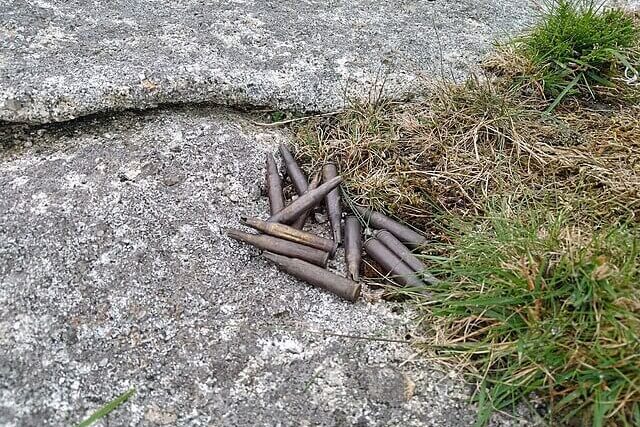
Shotgun pellets and bullets containing lead are to be banned for almost all uses, ministers have confirmed, in a long-anticipated move welcomed by wildlife conservation groups.
The restrictions will be introduced gradually over a three-year period starting in 2026, rather than the five-year timeline proposed in an official report last year. This has led some shooting organisations to express concern that alternative ammunition may not be widely available in time.
Under the new legislation, announced by Environment Minister Emma Hardy, shotgun pellets containing more than 1% lead and bullets with over 3% lead will be prohibited.
Lead-based ammunition has long been recognised as a significant environmental pollutant and a particular threat to waterbirds. The Wildfowl and Wetlands Trust (WWT) estimates that around 100,000 waterbirds die annually in the UK from lead poisoning.
The ban is “a huge day for wildlife, particularly the migratory waterbirds who call our wetlands their home”, said the WWT.
Campaigners note that birds frequently ingest spent lead pellets, mistaking them for seeds or grit.
A 2022 report found that 99.5% of pheasants shot using shotgun pellets contained lead, highlighting the ineffectiveness of previous voluntary initiatives to encourage shooters to switch to non-lead alternatives.
The new ban, which will apply across England, Scotland and Wales, follows recommendations made in December by the Health and Safety Executive (HSE), which had originally suggested a five-year phase-out following a public consultation.
The British Association for Shooting and Conservation (BASC) expressed general support for the policy but criticised the decision to reduce the transition period to three years.
“That is not the case for commercial and supply reasons beyond our sector’s control. We urge government to adhere to a five-year timescale proposed by the Health and Safety Executive.”
Tim Bonner, Chief Executive of the Countryside Alliance, said his organisation also supported the principle of the ban but warned that the shorter timeframe would present “challenges for ammunition manufacturers”.
He said: “This is an important step for the future of shooting, which will benefit the countryside and rural economy. The alliance has long advocated a move away from lead ammunition, which is necessary and beneficial.”
Hardy said: “Britain is a proud nation of nature lovers, but our rivers are heavily polluted, and majestic birds are declining at an alarming rate. This new ban on lead in ammunition for most uses will help reverse this – rejuvenating pride in our countryside by protecting precious birdlife and cleaning up rivers.
“Non-lead alternatives are readily available, and we’ll continue to work closely with the shooting sector throughout this transition.”
James Robinson, the head of birdlife charity the RSPB, said: “Long known to be a poison, we have campaigned for decades to have lead ammunition removed from use. This move, whilst long overdue and stopping short of a full ban, will mean that Britain will become a safer place for millions of birds and other wildlife.”
There will be exemptions for certain uses, including the outdoor shooting of permitted birds and animals using small-calibre bullets, due to the lack of suitable non-lead alternatives. Airguns will also be exempt, as will ammunition used by elite athletes, the military, police, and at outdoor target shooting ranges with appropriate risk management measures in place.
——————————————————————————
At Natural World Fund, we are passionate about restoring habitats in the UK to halt the decline in our wildlife.

